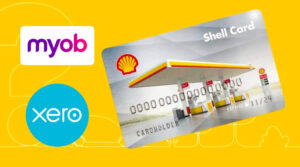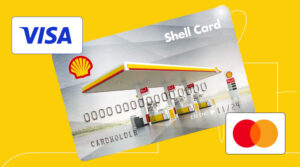In order to take advantage of this particular benefit, proper fuel card reports are essential, as all that data and all those benefits will come to nothing if you’re not being updated on the use of your fuel cards.
Fuel card reports
Fuel card reports are the backbone of the administrative advantage of fuel cards. They help you monitor the flow of money spent on fuel and associate this spending with each member of your fleet. Every transaction is recorded online in real-time, and invoices can be generated on the fly. Some of the data may also be associated with per-vehicle mileage tracking, which allows you to not only look at the kinds of routes your vehicles are taking, but also get notified about when some vehicles are due for maintenance already. With proper security systems such as PINs and advanced anti-fraud systems, fuel cards may reduce the occurrence rate of fraud, or limit the damage that any single instance of fraud may cause.
In order for fuel cards to be useful to you in the first place, they must be generated and delivered accurately, and in a timely fashion. This will allow you to, based on these reports, make decisions that may be time- or mission-critical.
In addition, knowing what reports are available to you is an important step in choosing what fuel card provider to acquire for your fleet. Any good fuel card provider will have a core backbone of reports that will be useful to any fleet, and it’s up to you to determine how well they’re executed. Let’s take a look at the top 5 fuel card reports that every fleet manager should utilize.

1. General Ledger (GL) Code Reports
Your general ledger will contain every transaction that your company makes. Fuel is a big and complex category of transactions that can definitely become very difficult to keep track of, the more vehicles and drivers you have, as well as the more trips and routes you’re managing. A good fuel card system will generate GL code reports for you that summarize all transactions in however way you choose. You may create reports that outline almost anything involved in each fuel card transaction, such as each fuel card that your fleet is using, individual vehicles or drivers, or particular fuel products that you’re keeping track of. You may also create more complex rules that suit your needs, to generate exactly the reports that you need.
2. On-site Fueling Reports
One important duty of fleet management is keeping track of what goes on at the pump – no matter whose pump it is, or where the pump is located. You should be able to capture data for every fueling event, whether it’s at an on-site pump, mobile fueling, or a partner fueling station making use of your fleet fuel card. A good fleet management provider will give you on-site fueling reports that will combine all this data into a useful summary of all your fueling activity for each vehicle.
3. Exception reporting
Bad news must travel fast to help limit any damage that must occur. You need to be on top of anomalous or problematic transactions as soon as they occur, to prevent any potential fraud. Among your most important fuel card reports should, therefore, be exception reporting. These may be emailed directly to you, whenever individual transactions are made that do not comply with your policies. You can also detect fraud at a larger scale in the form of management reports, which look at long-term driver behaviour and search for noncompliant behaviour. The system works best when both real-time individual alerts and management reports, are used together to form a complete picture of potential fraud.
4. Odometer tracking
With odometer tracking, fuel card reports will be able to provide you with valuable fuel economy information, such as cost per mile and miles per gallon. This data can be repurposed in a wide variety of ways; for example, inconsistencies in MPG reports may indicate bad driver behaviour, or even be a sign that vehicle maintenance may be needed. Aside from detecting maintenance issues as they occur, odometer tracking also allows you to schedule the usual routine maintenance that occurs every couple thousand miles.
5. Fuel Tax Refund
Off-road diesel use is often eligible for tax refunds, but it can be difficult to keep track every time you use the stuff because its use must be registered separately from what you use in your vehicles. Manually tracking this use is time-consuming and you might miss things at times if you’re not careful!
A good fleet management setup will allow you to identify and separate this off-road use to help in generating reports for your refund needs.

Conclusion
A good fuel card provider is only as beneficial as the reports it provides. Make sure that any prospective provider will have these reports available to you, and determine how they’re delivered as well to see if they are to your liking. Partnering with the right provider and fleet management setup will give you a wealth of analytics and data that you can use to bolster your business’s operations, saving time and money, and greatly improve your efficiency.


